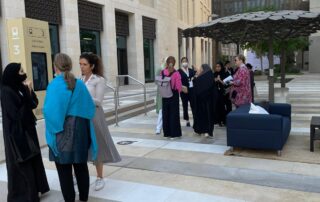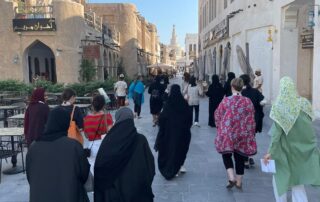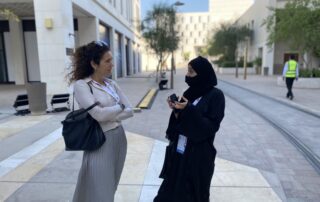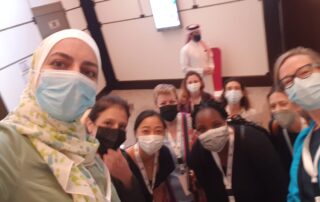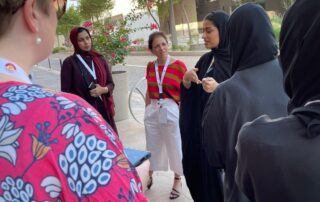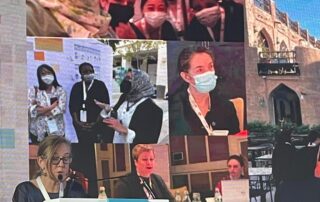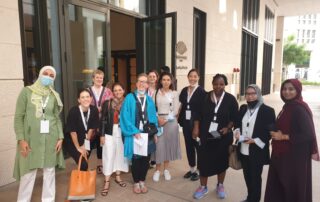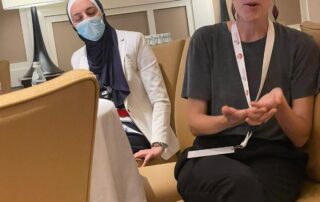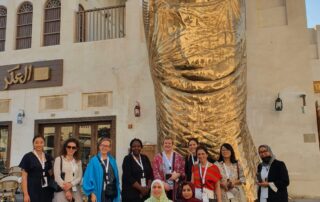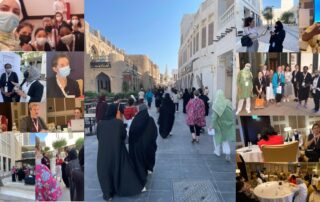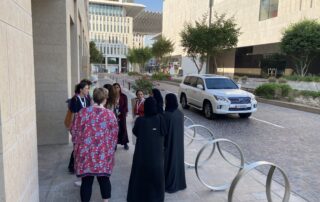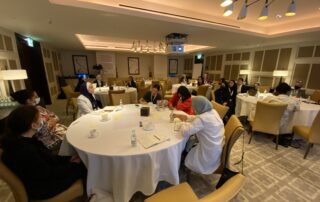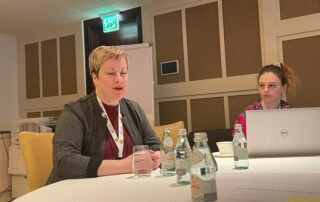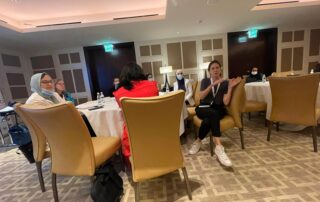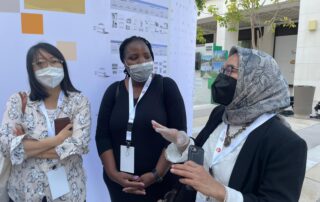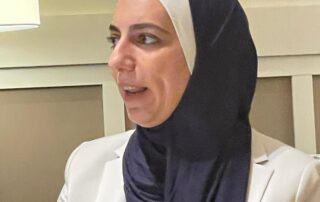For the first time in ISOCARP’s history, Women In Planning events -by and for women- were held at the World Planning Congress (WPC).
The initiative was initiated and led by Board member Elisabeth Belpaire and coordinated with Congress Director Neeanne Balamiento and Tamader AlSalat from the Ministry of Municipality (MME) of Qatar.
The Women In Planning events will be a recurring event at ISOCARP’s WPCs; one of Elisabeth’s key goals that has been widely supported by the participants of the WPC in Doha.
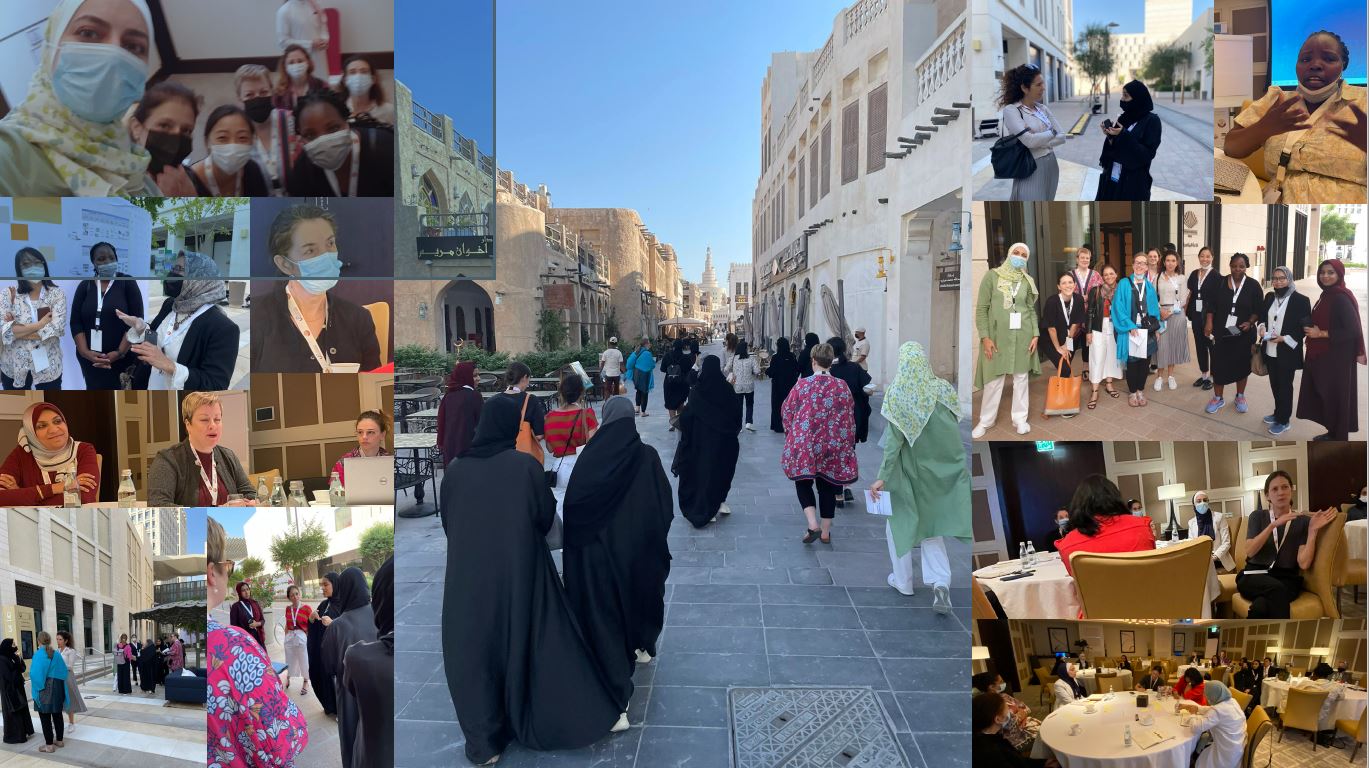
The highly interactive in-person events on the 9th and 10th of November brought together professional women in planning from across the world, from different ages and diverse fields including practitioners, academics, public servants, government officials, young planning professionals, and students. Jointly delivered by ISOCARP and MME, and warmly supported by the women keynote speakers of the Doha congress.
A first event the ‘Walk and Talk’ took the participants on an inspiring walk through the unique Msheireb and Souq Waqif neighbourhoods during early morning hours with temperatures that are still comfortable to walk outside. During the walk participants explored and reflected on a number of topics in 5 smaller breakout groups. The trips were guided by women planners of MME, bringing all along to diverse human scale public meeting and conversation spaces. The dialogues were moderated by ISOCARP members, using specific questions as conversation starters. For example ‘How would cities look like if they were designed by women?’ led to reflections on walkability of pregnant women and the need for more benches within shorter distances. Also the importance and comfort of smaller semi public spaces for socializing and wellbeing in the local context.
The next day, the ‘Shared Journeys and Coffee’ event opened new perspectives wi th first hand authentic insights from women leaders. The networking event started with a number of members’ reflections and key takeaways from the ‘Walk and Talk’. Then 7 women in planning speakers shared their professional journey and personal experiences. Including from Canada Netherlands, Qatar, South-Africa, UAE, US.
- Caroline Bos, co-founder UNStudio, keynote, ISOCARP keynote
- Eleanor Mohammed, President Commonwealth Association of Planners, ISOCARP keynote
- Maryam Hussain, Head of Planning, MME Qatar
- Hangwelani Hope Magidimisha, Professor Town & Regional Planning, WPC Co-Rapporteur
- Badria Kafoud, first Architectural Engineer Qatar
- Kate Holmquist, Director Werkstadt, Dept Chair Scientific Committee ISOCARP
- Huda Shaka, City Advisor, Community of Practice Urban Health ISOCARP
The shared journeys and constructive discussions were a unique opportunity to hear inspiring stories and having role models for younger women planners. Some experiences demonstrated continued existence of systemic barriers for example at the intersection of being woman and coloured and high level academic ambition, still leaving many women’s potential unrealised, and possible constructive approaches to tackle those. Or the lived experiences of Qatari planners acknowledging the vital government support through education and career support.
Both events were very well received by the participants as a source for inspiration, exchange and learning, and enablers for building support and networking friendships. For some the highlight of the WPC. Building on that momentum participants contributed ideas what ISOCARP can do, for example in the short term setting up an interactive platform or group for ISOCARP Women in Planning group.
Contributors to the events as speakers, moderators, guides, facilitators, content or organisational: Fatma Albader, Amna Aljaber, Lolwa Alkhaldi, Aisha Alkuwari, Tamader AlSalat, AlMaha Alyafaei, Neeanne Balamiento, Elisabeth Belpaire, Caroline Bos, Juannee Cilliers, Ghada Futtais, Kate Holmquist, Maryam Hussain, Badria Kafoud, Slawomir Ledwon, Hope Magidimisha, Eleanor Mohammed, Harini Septiana, Huda Shaka.
Enabling networking and providing a nurturing and safe environment for sharing, open discussion and learning is an important building block for the empowerment and the advancement of women leaders in planning globally. And also to unlock planning for better places, more equitable communities and the inclusive big transformative change that our urban world needs this decade in the context of climate and biodiversity crisis.
